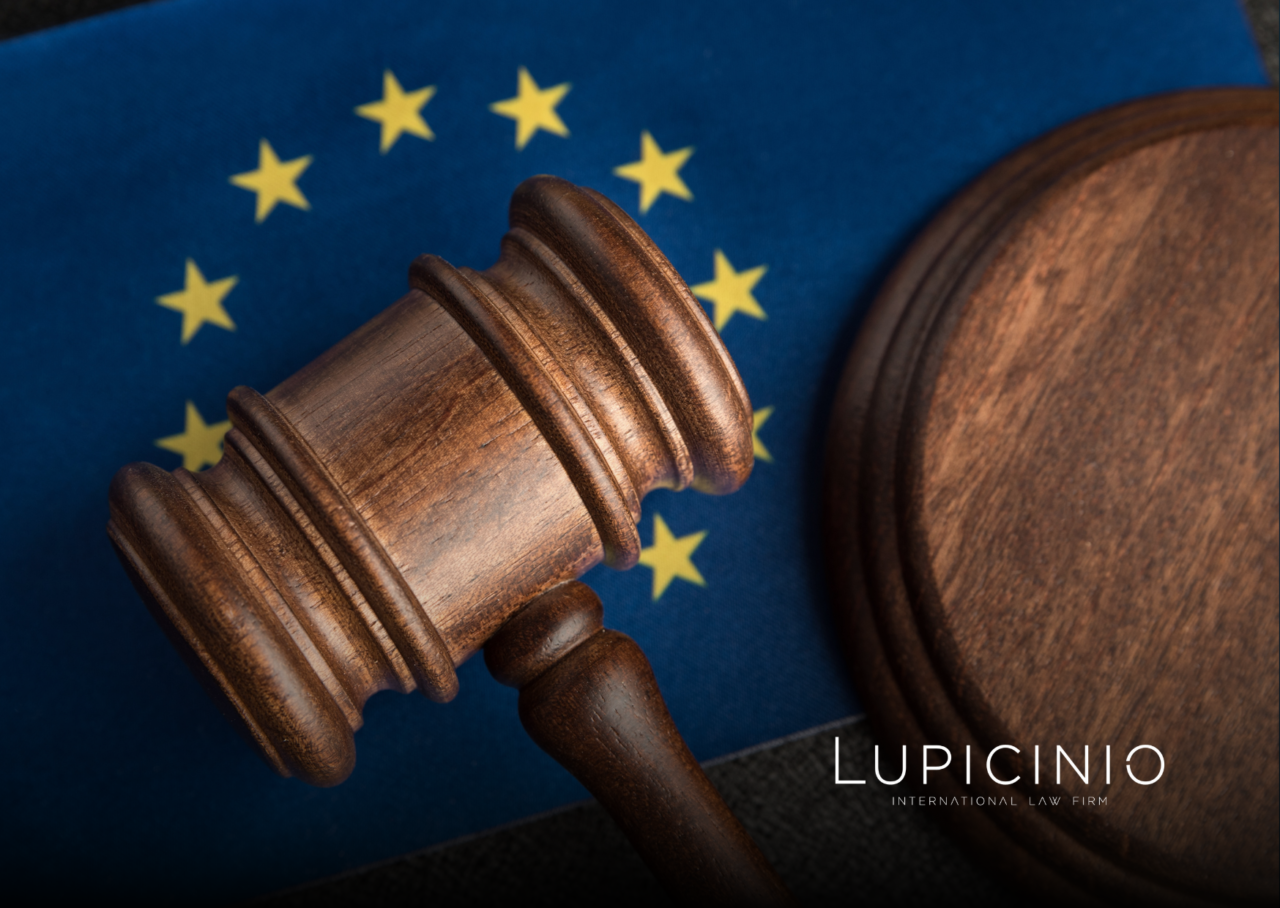THE COURT OF JUSTICE HAS INTERPRETED THE PROHIBITION ON PROVIDING LEGAL ADVISORY SERVICES TO RUSSIAN LEGAL ENTITIES IN RELATION TO THE NOTARIAL FUNCTION
On September 5, the Court of Justice issued an important judgment in the case C-109/23 [Jemerak], in response to a preliminary ruling, in which it interpreted the prohibition on providing legal advisory services to the Russian State and to Russian legal entities in relation to certain aspects of the notarial function. However, the reflections made can be extended to the whole of this function and it also provides some important definitions for any law professional.
Article 5 quindecies, paragraph 2, of Regulation (UE) 833/2014, concerning restrictive measures motivated by Russian actions destabilizing the situation in Ukraine, prohibits the provision of legal advisory services to the Government of Russia or to legal persons, entities or bodies established in Russia, except for the provision of services that are strictly necessary to ensure access to judicial, administrative or arbitral proceedings or for the recognition or implementation of a judgment or arbitral award.
Before continuing with the analysis of the judgment, we must remember that Article 5 quindecies, paragraph 2, of Regulation (EU) 833/2014 has been under three actions for annulment to which several interveners have joined. The General Court will rule on October 2 regarding these appeals and its rulings, if favourable to the appellants, would mean the end of all these problems.
The legal and factual background which started the judgment we are now addressing was as follows: the German Civil Code establishes that a contract of sale of real estate must be notarized and the Land Registry Act states that registration may only be done if the legal transactions that are necessary for registration are evidenced by official documents or genuine documents. In this legal framework, two Germans were about to purchase an apartment in Berlin, which was registered in the name of a Russian company; buyers and selling company requested a notary to execute a public deed of sale of the property. The notary refused because it could not be ruled out that the notarization of the contract was in breach of the prohibition of Article 5 quindecies, paragraph 2. Accordingly, it should be remembered that the Commission in its Frequently Asked Questions had stated that the mentioned article applied to notarial services provided to legal entities established in Russia.
Facing the notary’s refusal, an appeal was lodged at the Berlin Regional Court for Civil and Criminal Matters and the latter referred the matter to the Court of Justice for a preliminary ruling, asking 3 questions, which were essentially the following ones: is the authentication by a notary of a contract of sale of real estate owned by a Russian legal entity prohibited? are the acts of execution of that contract carried out by the notary for the cancellation of charges on the real estate, registration, etc. prohibited?, and are the translation services provided by an interpreter on the occasion of such authentication prohibited?
Regarding the first question, the Court of Justice starts by giving two definitions that are not mentioned in positive law: “the term legal advice designates, generally, an opinion on a matter of law” and then adds “The term legal advice in Article 5 quindecies paragraph 2 of Regulation nº833/2014, concerning the term services, refers to the exercise of an activity of an economic nature based on a relationship between a service provider and his client, which has as its object the provision of legal advice, whereby the former provides advice on law matters to those who request it”.
With these definitions clear, the Court of Justice points out some essential aspects; firstly, that the activities of legal advice services are clearly different to those activities in which public authorities may be required to perform in a general interest function and which had been given, for this purpose, certain powers binding on citizens. On this matter, the Court understands that the function of the notary is limited to the authentication of the purchase contract and it does not seem possible that within this authentication, the notary acts in order to promote the specific interests of one or both of the parties, but in an impartial manner, with equidistance between the parties and their respective interests, only in the interest of the law and legal certainty.
Secondly, the Court of Justice refers to the regulatory context in which Article 5 quindecies, paragraph 2, of Regulation 833/2014 is included and concludes that no provision provides for a general prohibition to intervene in a transaction with a legal person just because it is based in Russia and neither is there a general prohibition to transfer immovable property located in the territory of the Union and owned by such persons. Indeed, not all Russian legal entities are subject to European sanctions, those that are not sanctioned may carry out related to their properties located in the Union, but such transactions could be blocked, effectively, in some Member States, such as Germany, where notarial authentication of the contract of sale of real estate is an essential requirement for the disposal of such property. Moreover, the different notarial systems in the Member States would otherwise give rise to differing applications of Article 5 quindecies, paragraph 2.
Finally, the Court of Justice recalls that in accordance with recital 5 of Decision 2022/1909, Article quindecies, paragraph 2 of Regulation 833/2014 pursues the objective of preventing the avoidance of European sanctions, but insofar as commercial transactions with Russian legal entities are not subject to a general prohibition it is not apparent how the notarial authentication of a contract for the sale and purchase of real estate owned by a Russian company could, a priori and in a generalized way, contribute to avoiding European restrictive measures.
All this makes the Court conclude, regarding the first question, that the authentication of a contract of sale of real estate owned by a Russian legal entity, if done by a notary, is not prohibited.
Regarding the second question, that is to say, whether the tasks provided for in German law which the notary must perform in order to ensure the execution of the contract of sale of real estate (guaranteeing the safekeeping and payment of the price, cancelling the charges on the property, recording the transfer of ownership in the register, etc.) are permitted, the Court of Justice concludes that it is for the national court to assess whether they involve the provision by the notary of legal advice to the parties in accordance with the definition of legal advice cited above. However, the Court, despite the reference to the national court’s assessment, states that such tasks do not seem to involve the provision of legal advice by the notary.
About the third question, that is, whether the provision by an interpreter of translation services in connection with the authentication of a contract of sale of real estate is permitted, the Court concludes that, since the profession of interpreter is not of a legal nature, the translation services provided by an interpreter do not have the characteristics of legal advice, so this activity is not prohibited.
At this point we must point out that, in addition to its content regarding notarial activity, it is very remarkable that the judgment provides us with a definition of what is meant by the term legal advice for the purposes of the application of Article 5 quindecies, paragraph 2, of Regulation (EU) 833/2014.
It is clear that lawyers will carry out general interest activities when advising the majority shareholder or the corporate director of a European company in relation to the adoption of good governance practices, in the adoption or creation of policies that foster transparency and ethics in business operations, in the development of policies and itineraries that foster diversity, equality and sustainability within the organization. These policies and legal actions carried out by lawyers, who are not necessarily public authorities, represent a commitment to social welfare and corporate social responsibility.
Either way, we will know next October 2 whether the ban on providing legal advice to Russian legal entities will be maintained or annulled by the General Court.
******
More information:
Lupicinio International Law Firm
C/ Villanueva 29
28001 Madrid
P: +34 91 436 00 90







